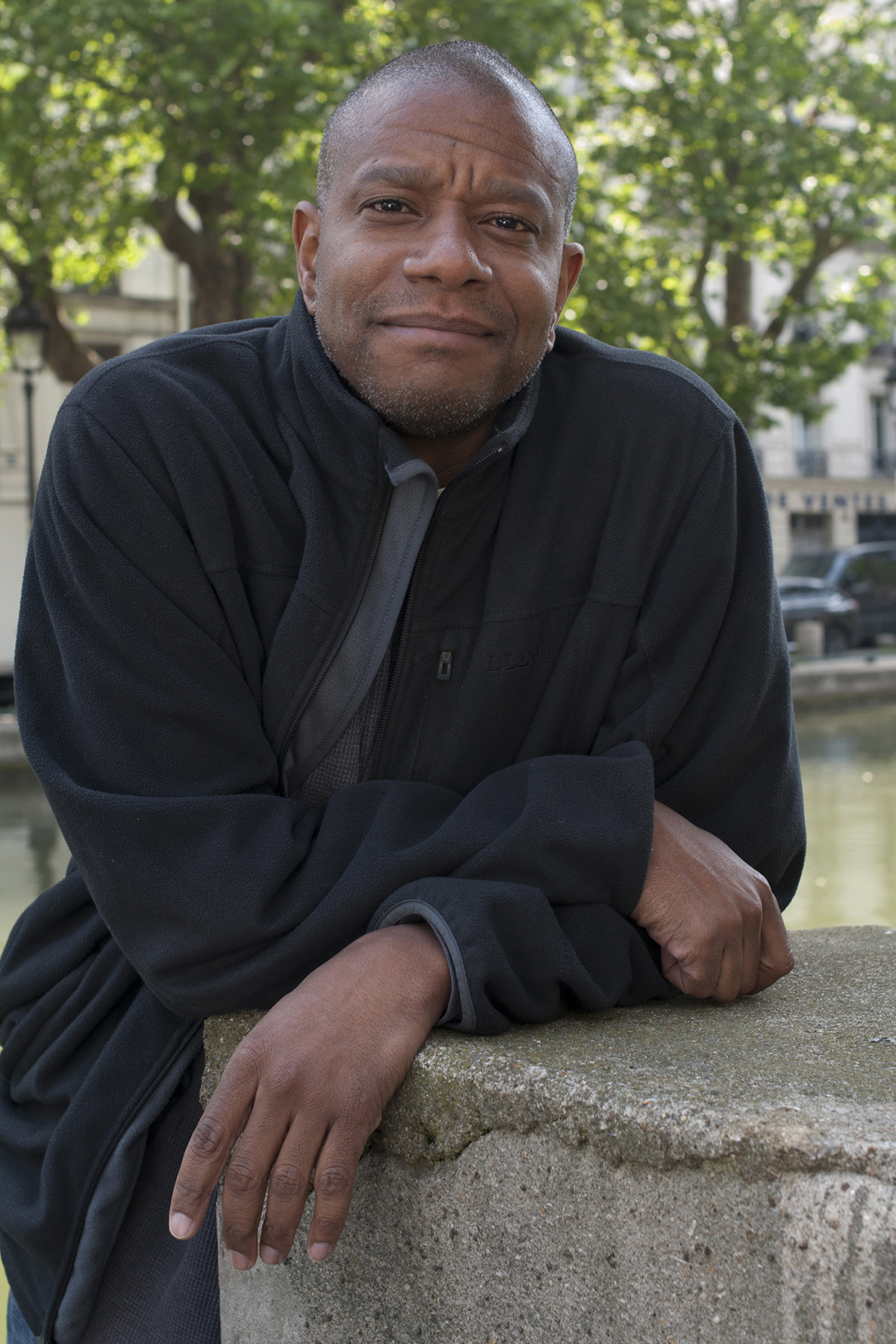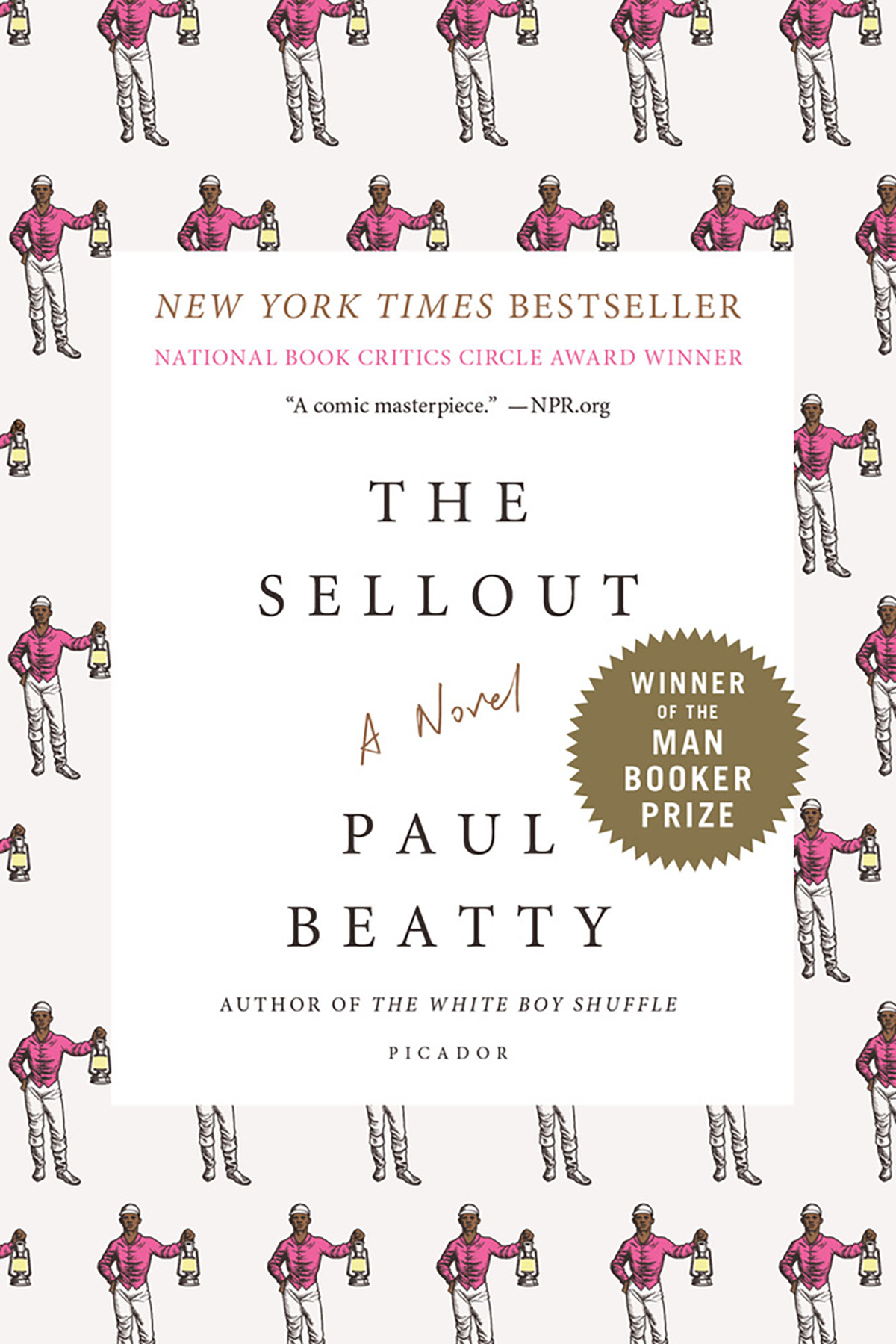This week’s Chautauqua Literary and Scientific Circle selection couldn’t start in a better place for Week Five’s theme, “The Supreme Court: At a Tipping Point?”
It literally begins in the highest court in the land.
Paul Beatty’s novel The Sellout starts with its narrator, named Me, being brought to trial for trying to reinstate slavery and segregation. In 2016, Beatty became the first American author to win the Man Booker Prize for Fiction.
Beatty will discuss his work at 3:30 p.m. Thursday in the Hall of Philosophy for Week Five’s CLSC Roundtable. The presentation is partially sponsored by the CLSC Class of 1992.
Sherra Babcock, vice president and Emily and Richard Smucker Chair for Education, said that she wanted to consider the theme of the Supreme Court in a different way with the week’s CLSC selection. Rather than a book of history about the Supreme Court or a biography of one of its justices, she and her colleagues wanted to find a novel that could get people thinking.

“We were struggling while trying to figure out what book could brighten the week that wasn’t nonfiction,” Babcock said. “(Associate Director of Education and Youth Services) Matt Ewalt and I went to visit Ron Charles in Washington, D.C., and he said, ‘Have you thought about The Sellout?’ ”
Charles is a literary critic and editor of The Washington Post’s Book World. He served as a juror for the Pulitzer Prize in Fiction in 2014 and on the jury for the National Book Critics Circle Awards in 2015. Beatty’s book won the NBCC Award for fiction that year. Charles will interview Beatty for the presentation on The Sellout.
When Babcock mentioned that she was interested in finding a book about race relations as well as a book about the Supreme Court, Charles said that The Sellout seemed like it would be “just perfect,” because it does both.
“It’s a pretty radical book, I think,” Charles said. “I mean, I know it is. It’s a pretty challenging book for Chautauqua to pick because it is not a comfortable book in any way. It’s funny, but often shockingly funny.”
Beatty’s book has been called a comic novel and a satire — labels that Beatty himself has pushed back on when discussing The Sellout. When asked about it in an interview with Chris Jackson for The Paris Review, Beatty said: “Just poking fun at somebody doesn’t make something satire. It’s a word everyone throws around a lot. I’m not sure how I define it.”
He wasn’t that surprised by readers and critics labeling the book as a “comic novel,” Beatty said, but the satire label caught him “off guard for a little bit.”
“This is not to say that ‘satire’ is dismissive, but satires don’t really say much,” Beatty said, noting that the word has become somewhat diluted over time.

Charles said he wants to talk to Beatty about the book’s categorization, particularly because of Beatty’s pushback against labels.
“When you say it’s a satire about racism — which is a label that I think Paul Beatty has rejected — we all know that racism is bad,” Charles said. “And what could one say about racism that would be unsettling or that would surprise you? There’s no pro-racism group at Chautauqua, I’m sure. But this is a book that really gets under your skin and really questions your own liberal sensibilities and tests them in a way that is very uncomfortable. It’s a really brilliant book.”
Part of that uncomfortableness might come from Beatty’s use of language in the novel: The book is laden with profanity and racial slurs, but it’s incorporated to serve a greater purpose. Beatty said playing with language is essential to how he sees The Sellout.
This is true even for words that aren’t profane, such as “community” — which happens to be this year’s vertical theme for the CLSC. Beatty said community plays an obvious role in the novel, but it’s a word he’s not “very comfortable” with because it comes with certain connotations.
“It’s kind of one of those words that you can toss out there: you know, ‘the community,’ ” Beatty said. “Not to say that it’s empty, necessarily. I like to think about language. But the book kind of questions what we mean when we use certain words like that.”
Beatty said he doesn’t believe that The Sellout is a “protest book, necessarily,” and he doesn’t want his book to be read as a manifesto or a polemic. Instead of dictating how he wants others to read his work, he said he’d rather have readers approach the novel on their own terms.
Reporter’s Notebook
The Chautauqua Literary and Scientific Circle Historic Book List features hundreds of selections, some of which present themes similar to 2017 CLSC selections.
If you liked The Sellout, you might also like…
Jefferson’s Pillow: The Founding Fathers and the Dilemma of Black Patriotism by Roger Wilkins (2002-2003)
First Among Equals: The Supreme Court in American Life by Kenneth Starr (2003-2004)
The Hemingses of Monticello: An American Family by Annette Gordon-Reed (2009-2010)
Finally, four extra recommendations from the reporter:
Imbeciles: The Supreme Court, American Eugenics, and the Sterilization of Carrie Buck by Adam Cohen
Invisible Man by Ralph Ellison
Negroland by Margo Jefferson
Counternarratives by John Keene
“I heard someone use the word ‘manifesto’ the other day, and I think we often want to see things as manifestos,” Beatty said. “People want these very definitive points of view — this book does x; we need this book to do y. But I don’t really think that way. The fun is in the language and hopefully in the originality.”
Readers might bristle at the language in The Sellout, but Babcock said she thinks “the manner of expression” is necessary to what Beatty’s book offers.
“Could that point be made without the language?” Babcock said. “Perhaps. Perhaps by another author. But the language is part of the experience of this book.”
///
The book’s “bite” might scare some readers away, Babcock said, but she thinks the conversation between Beatty and Charles provides an appealing opportunity for the two to discuss the novel’s many themes and for Chautauquans to listen in. She said the issue of race and the Supreme Court — which she believes The Sellout tackles with substance — is still “one of our most pressing societal issues.”
“I am very sad because I am a child of the ’60s, and I thought we could solve that — and we haven’t,” Babcock said. “I never had the silly notion that it’s ‘fixed’ now, but I really thought we’d be so much further along by now.”
Charles said that The Sellout “is not a book that confirms any of your comfortable attitudes about progress in America.” Beatty’s novel and the issues that it addresses are very American, Charles said, and it winning the 2016 Booker Prize was “a great thing for Paul, for the book and for American literature.”
“They could’ve picked a book that, even though it was American, had a sort of British feel to it, and they certainly did not,” Charles said. “They really went out of their country and their culture and their own comfort zone.”
Charles said he’s excited to address these questions with Beatty during their presentation. They first met at the NBCC Awards ceremony, but this will be their first time doing an event like this together.
“He is one of the sharpest, funniest, most original authors in America, so I can’t wait to meet him again,” Charles said.
And while Beatty doesn’t want to push any particular agenda on his readers, he said he hopes that his book “touches people somehow.”
“It just presents a percep`tion, a perspective or a point of view that I hope is fresh, maybe funny, maybe original,” Beatty said.
He has no specific thesis statement for his readers, Beatty said, but he’ll be happy if The Sellout gets them thinking.
“Hopefully they’re thinking about things they haven’t thought about before — in a way they haven’t thought about them before,” Beatty said.




